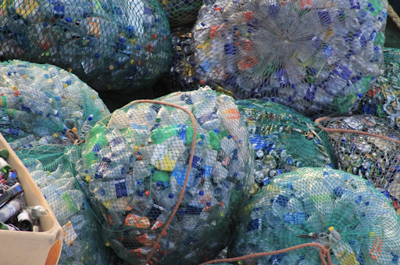In an age where environmental consciousness is more important than ever, recycling stands as one of the pillars of sustainable living. However, despite its widespread adoption, the world of recycling is fraught with misconceptions and myths that can hinder our efforts to protect the planet. This article aims to dispel some of the most pervasive recycling myths, drawing on insights from leading environmental sources.

Myth 1: All Plastics are Recyclable
One of the most common misconceptions is that all plastics can be thrown into the recycling bin. While it’s true that many plastics are recyclable, not all plastic types are accepted by local recycling programs. Factors such as the shape, color, and type of plastic can affect its recyclability. Items like plastic bags, polystyrene foam, and certain types of packaging can often pose challenges for recycling facilities and may need to be disposed of differently.
Myth 2: Recycling is More Energy-Intensive Than Making New Products
Another myth is the belief that recycling requires more energy than producing new items from raw materials. In reality, recycling materials like aluminum, glass, and paper can significantly reduce energy consumption. For instance, recycling aluminum saves up to 95% of the energy required to make the same amount of aluminum from its raw form, bauxite.
Myth 3: Recyclables are Always Recycled
Many people assume that once they place an item in the recycling bin, it's guaranteed to be recycled. However, contamination—when non-recyclable items are mixed with recyclables—can render a batch of recycling unusable. Additionally, market demand and local recycling capabilities can influence whether an item is recycled. It’s crucial to follow local recycling guidelines and ensure that only correct items are placed in recycling bins.
Myth 4: You Must Remove Labels Before Recycling Containers
While it’s helpful to clean recyclables, the belief that labels must be meticulously removed from containers like jars and bottles is unfounded. Modern recycling processes are capable of handling labels, though removing excess food and liquid from containers is still important to prevent contamination.
Myth 5: Biodegradable and Compostable Items Can Go in the Recycling Bin
Items labeled as "biodegradable" or "compostable" are not necessarily suitable for traditional recycling processes. These materials are designed to break down under specific conditions found in industrial composting facilities, not in recycling plants. Placing these items in recycling bins can cause contamination and disrupt the recycling process.
Myth 6: Recycling Doesn’t Really Make a Difference
Some skeptics argue that recycling efforts are too small to make a real impact on the environment. This couldn’t be further from the truth. Recycling conserves natural resources, saves energy, reduces greenhouse gas emissions, and minimizes landfill usage. Every item recycled contributes to a larger collective effort to create a more sustainable future.
Understanding the realities of recycling is crucial for making informed decisions about waste management and rubbish removal. By busting these myths, we can improve our recycling practices and contribute more effectively to environmental conservation. As we continue to learn and adapt, our collective efforts can lead to significant positive impacts on the planet.





(0) comments
We welcome your comments
Log In
Post a comment as Guest
Keep it Clean. Please avoid obscene, vulgar, lewd, racist or sexually-oriented language.
PLEASE TURN OFF YOUR CAPS LOCK.
Don't Threaten. Threats of harming another person will not be tolerated.
Be Truthful. Don't knowingly lie about anyone or anything.
Be Nice. No racism, sexism or any sort of -ism that is degrading to another person.
Be Proactive. Use the 'Report' link on each comment to let us know of abusive posts.
Share with Us. We'd love to hear eyewitness accounts, the history behind an article.